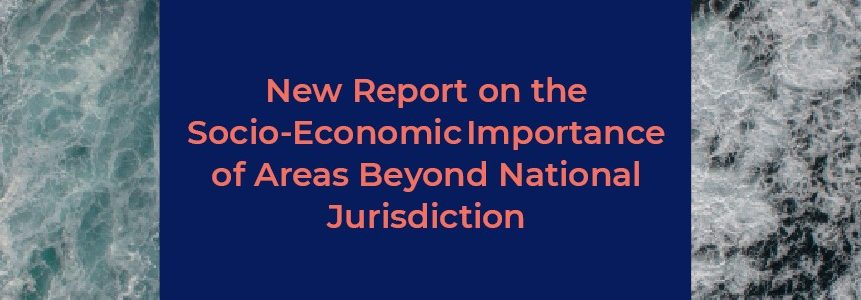The STRONG High Seas project has published two new complementary reports on the socio-economic importance of areas beyond national jurisdiction (ABNJ) in the Southeast Atlantic and Southeast Pacific regions.
The two assessments apply the ecosystem services concept to characterize socio-economic interests and the importance of biodiversity conservation in ABNJ in the two study regions. The reports intend to support decision-makers, including government officials, the private sector and other stakeholders to make informed decisions about ABNJ and weigh environmental, social and economic objectives, in the context of a new internationally binding treaty for the conservation and sustainable use of marine biological diversity beyond national jurisdiction (BBNJ Agreement).
The reports show that currently, the primary activities in study regions include fishing, navigation and transport, and maritime security as well as submarine cables. Emerging activities such as the harvesting and exploitation of Marine Genetic Resources (MGRs) and deep-sea mining are not pursued or only in an exploratory manner within the regions. Activities in ABNJ often require high investment and operating costs, due to the long distances required to reach resources in ABNJ (e.g. fisheries), the long timeframes required to create profits (e.g. MGRs), and the advanced technologies needed to exploit materials (e.g. deep-sea mining and MGRs). These costs are often reduced through State subsidies and investments from public universities, research institutes or private industry, as well as reduced social standards for workers. As a result, the exploitation of common resources within ABNJ across all industries is dominated by a limited number of States and/or companies. Thus, the socio-economic benefits resulting from the activities in ABNJ remain concentrated in a limited number of actors, while the costs due to reduced ocean health and ecosystem services are borne by the global community. Yet these costs may be ‘hidden’ as they are distributed across all humans on the planet, but especially those living adjacent to ABNJ, such as in the study regions, and include e.g. reduced contribution to global climate mitigation, forgone fishing opportunities, and loss of jobs and other contributions to local livelihoods.
Human activities can continue to offer promising sources of development for the study regions, but if not well managed, these activities may increase the pressure on ecosystems and could negatively impact local communities, rather than supporting sustainable growth and social inclusion. Investments are needed to improve capacity, while there is also a need to increase awareness on the sustainable blue economy – in the context of development policy and the green economy. The BBNJ Agreement also has the potential to facilitate capacity building, knowledge transfer, research and cooperation and thereby support a more comprehensive understanding of topics related to ABNJ by stakeholders. It also presents a unique opportunity for collective action towards the conservation and sustainable use of marine biodiversity and natural resources in ABNJ and has the potential to boost coordination and cooperation across global, regional and sectoral organizations. Cross-sectoral management measures will be required to address the interdependencies between socio-economic interests, including in ecosystem services, in ABNJ and the cumulative pressures resulting from these activities.
The reports can be found here:
- Study on the Socio-Economic Importance of Areas Beyond National Jurisdiction in the Southeast Atlantic Region / Étude sur l’importance socio-économique des zones situées au-delà de la juridiction nationale dans la région de l’Atlantique du Sud-Est
- Estudio sobre la importancia socioeconómica de las áreas fuera de la jurisdicción nacional (ABNJ) en la region del Pacifico Sudeste / Study on the Socio-Economic Importance of Areas Beyond National Jurisdiction in the Southeast Pacific Region




